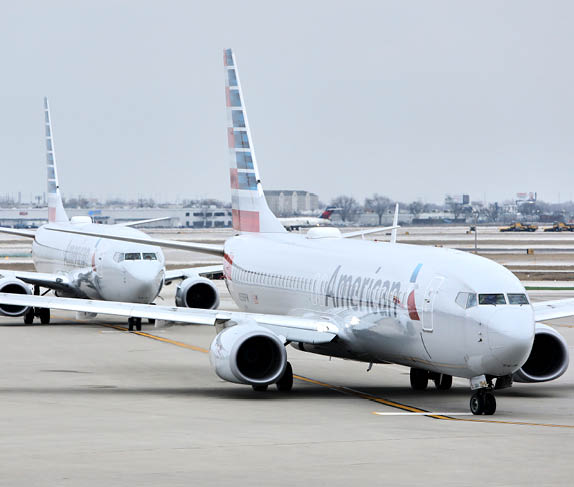Moves by a number of leading airlines to permanently retire significant parts of their fleet as a result of COVID 19 are a mixed blessing for spare parts sector with future demand likely to be non-existent for certain types of aircraft, according to Mike Bianco, chief executive of US firm, AvAir.
Last week American Airlines announced the permeant retirement of 100 aircraft from its fleet, including A330-300a, B757-200s and B767-300s, as well as Embraer and Bombardier jets. Likewise, Air Canada announced its was ending the working life of 79 of its aircraft as part of a trend for carriers either to bring forward planned retirements, or simply axing part of their fleets in response to lower passenger demand due to COVID 19.
In theory this should be a boon for a spare parts provider like AvAir in terms of feedstock availability, but Bianco says that not all planes that are being retired will have a value, even as low oil prices change the economics of using older aircraft .
“It’s a mixed bag with decisions like American’s to retire its 757s. That’s been a dead bird for a while in my opinion, we don’t even trade in that aircraft. Conversely, there’s a lot of 767 retirements at the moment and there is still a strong demand for material and engines for that aircraft. Obviously, this demand will change as the market becomes saturated, but it’s a good sign that you’ve got firms such as Amazon Prime Air flying 767s.”
AvAir has traditionally focussed on the narrowbody part of the market with Bianco estimating widebody activity accounts for around 25% of the firm’s business. Despite this, and the current bearish sentiment on widebody aircraft in general, the chief executive says the future market for larger planes could hold up.
“It’s probably too early to call the outlook on the widebody plane. International travel has just got clobbered but it could be a lot better for the widebodies than people are saying. It depends on how quickly the market responds to making people feel safe flying long haul, with a bunch of people crowded around them.”
AvAir recently signed a deal to purchase the majority of Lufthansa Technik’s overstock of rotable spares inventory, which saw the Arizona-based company acquire 9,000 line items, including IDGs, FADECs, and starters. Bianco says the firm is looking to making further acquisitions either inventory deals like the one with Lufthansa Technik, buying into contracts, or purchasing companies outright.
Last year Bianco became chief executive of AvAir in a management buyout, backed by Corrum Capital Partners, when founder Robert Ellis sold his business. In 2018 Corrum closed a $250 million aviation fund at the time Jason Cipriani, co-managing partner at the private debt fund, said it would enable the firm to “significantly” expand its aircraft holdings and part of these funds are available to back deals by AvAir.
Bianco declines to give exact details of the cash at his disposal but says that access to a portion of the fund manager’s aviation dry powder means AvAir is looking to make acquisitions that fit within the firm’s main business of aircraft inventory supplies.
“All the experts are saying that the after-market is going to be different, but we are still talking about a multi-billion dollar space, there is just going to be fewer players in it. Our partnership with Corrum Capital Partners means AvAir is well capitalised and is looking to buy businesses that fit our core competencies.”
AvAir was in advanced discussions with one party which were broken off in March as the impact of COVID 19 made deal-making impossible, but Bianco says that once the market starts to rebound the firm is going on the acquisition trail.
“There’s two acquisitions that we are pretty serious on, and our talks on these are now probably going to resume in late summer.”

